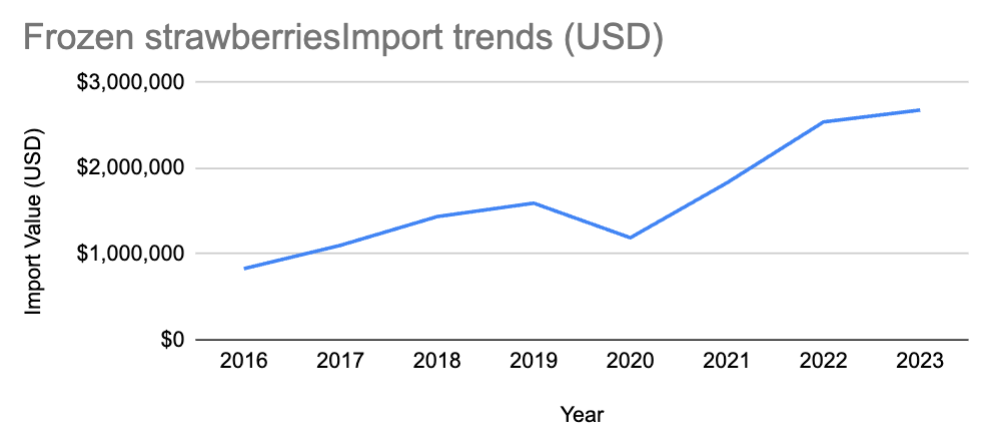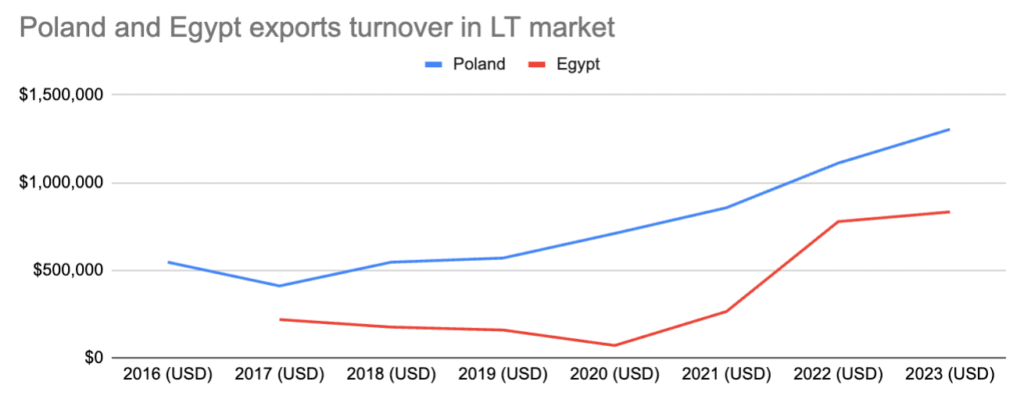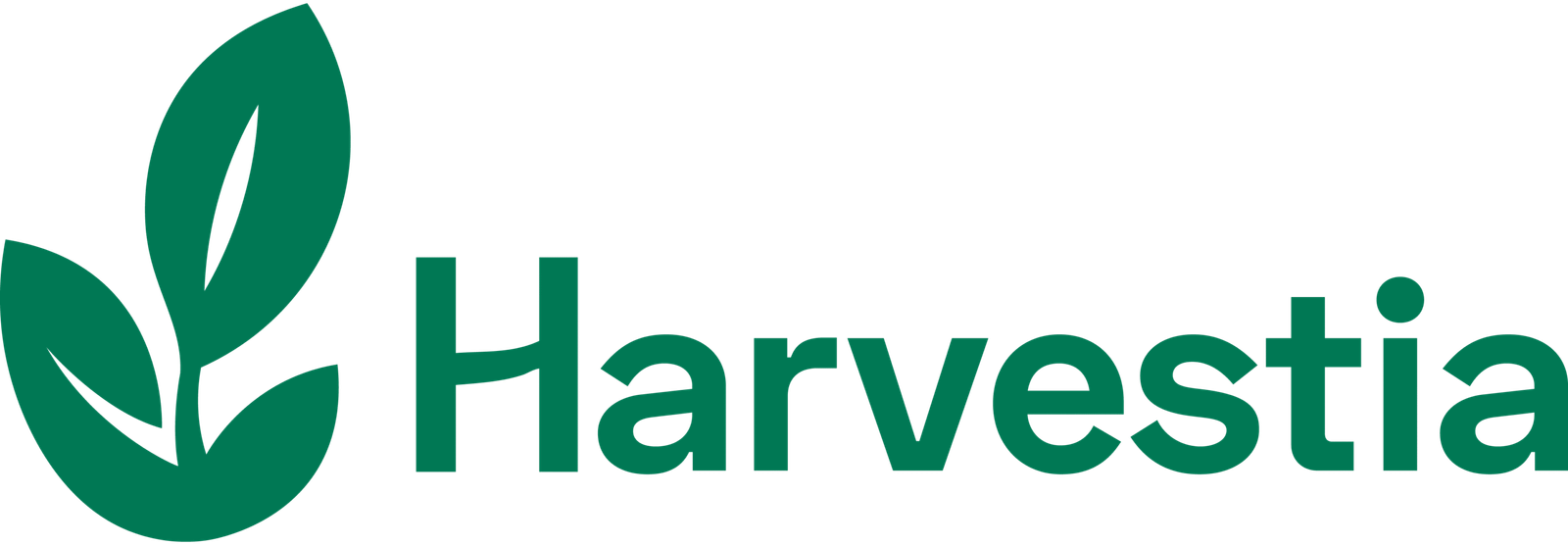
Frozen strawberry imports in Lithuania have seen strong and consistent growth over the last decade, revealing a clear upward trend in consumer and commercial demand for high-quality frozen fruits. With applications across the retail, HoReCa, and food manufacturing sectors, frozen strawberries have become a category to watch — especially as Egypt rapidly increases its market share alongside long-time suppliers like Poland.
In this article, we explore official trade data (HS Code 081110) from 2016–2023 to analyze Lithuania’s sourcing patterns, shifting supplier roles, and the growing relevance of Egypt in the Baltic frozen fruit market.
1. Import Value and Volume Have Tripled
From $829,780 in 2016 to $2,678,510 in 2023, Lithuania’s import value of frozen strawberries has grown by 223%. Volume-wise, the growth is equally impressive — from 613,787 kg in 2016 to 1,720,190 kg in 2023.
This surge reflects:
- Rising popularity of frozen fruits in consumer diets
- Expansion of smoothies, desserts, and breakfast lines in cafés and hotels
- Growth of industrial processing in frozen yogurt, jams, and bakery fillings
Lithuania’s demand for frozen fruit is both retail-driven and HoReCa-influenced, positioning strawberries as a year-round necessity.

2. Poland Leads, Egypt Accelerates
Poland continues to dominate Lithuania’s frozen strawberry supply, exporting over $1.1 million in 2022 alone. But Egypt has shown the highest growth rate among all non-EU suppliers.
Key Egypt highlights:
- Entered the Lithuanian market in 2017
- Grew from $218,250 in 2017 to $777,580 in 2022
- Continued growing with a 7.1% YoY increase in 2023
Egypt’s performance demonstrates not just demand but growing trust in its frozen strawberry quality and supply consistency.

3. Egypt’s Comeback and Momentum
Egypt experienced a dip in exports to Lithuania in 2020 due to pandemic-related supply chain disruptions. However, the rebound has been sharp and sustained:
- 2020: $70,190
- 2021: $264,370
- 2022: $777,580 (↑ 194.2%)
- 2023: Further 7.1% YoY growth
This growth is enabled by better logistics, enhanced cold chain infrastructure, and increased awareness among Baltic buyers of Egypt’s export reliability.
Looking to explore certified frozen fruit options sourced directly from Egypt? Visit our IQF Product Range for more.
4. Applications Driving Import Demand
IQF strawberries in Lithuania are used across:
- Smoothie and juice bars expanding across urban centers
- Frozen desserts and dairy products including ice cream, yogurt, and cheesecake
- Commercial bakeries using strawberries in muffins, tarts, and fillings
- Food manufacturers producing pre-packed breakfast bowls and frozen cakes
These demand segments are price-sensitive, quality-focused, and require consistent supply — aligning well with Egypt’s growing capabilities.
5. Why Egypt Appeals to Baltic Buyers
Egypt offers strategic advantages:
- Competitive pricing due to lower input costs
- Extended harvest windows, ensuring availability when EU crops are out of season
- Fast shipping via Mediterranean ports to Klaipėda and other EU entry points
- BRC, ISO, and Global GAP certifications among leading producers
Egypt’s rise as a frozen strawberry origin isn’t accidental — it reflects years of investment in processing, compliance, and partner relationships.
(External resource: UN Comtrade – Egypt Fruit Exports)
🔍 Final Thought: Diversification Is the Future
Lithuania’s frozen strawberry market continues to grow steadily — and importers are taking note. While Poland remains a key partner, the sharp rise in Egypt IQF strawberry exports reflects a clear shift: importers are diversifying.
Trading companies like Harvestia help bridge the gap between EU market expectations and trusted sourcing from Egypt, providing traceability, logistical ease, and adaptable packaging to match evolving demand.




